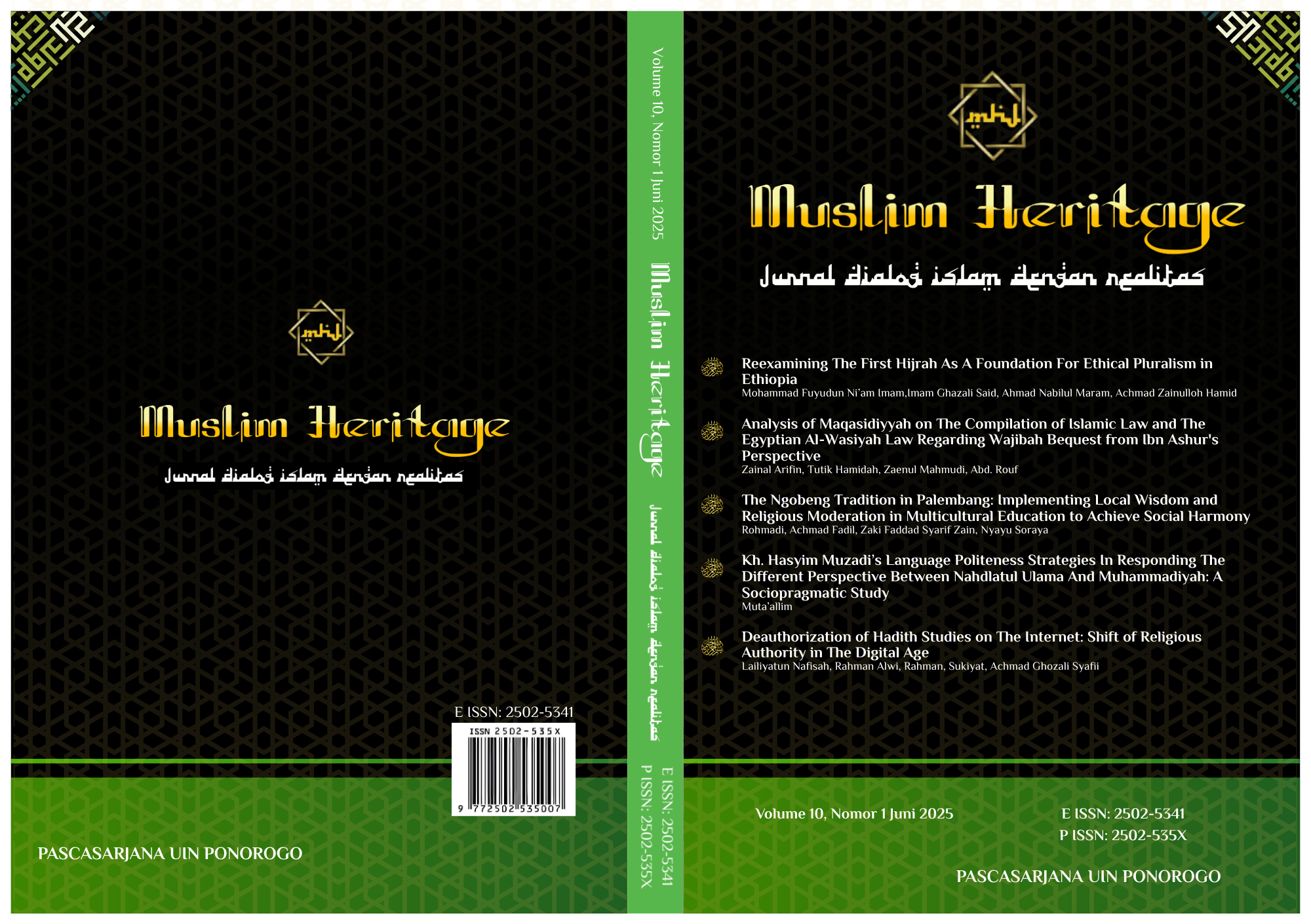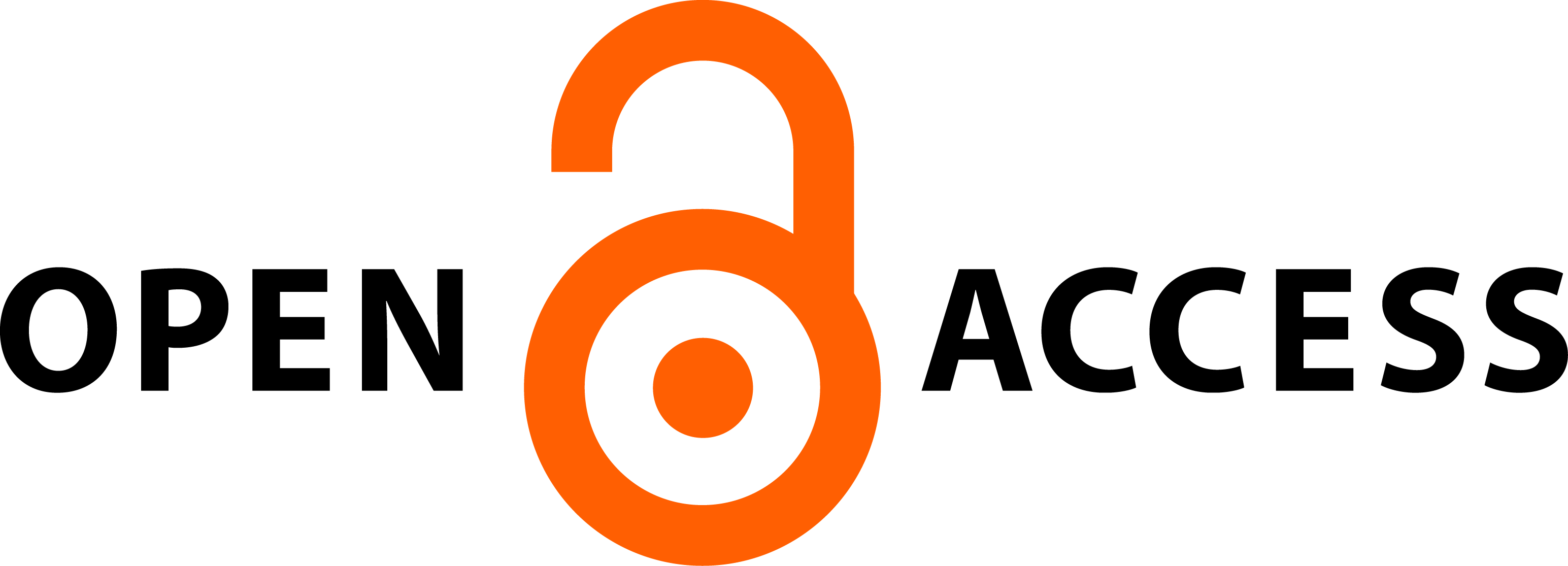Moderate Ideology Of The Yellow Book (Kitab Kuning)
(Study on the Moderation of the Kitab of Fatḥ al-Mu'īn Taught in Islamic Boarding Schools)
DOI:
https://doi.org/10.21154/muslimheritage.v10i1.10722Abstract
The Yellow Book (Kitab Kuning; an Islamic textbook taught in Islamic boarding schools) study on moderation is still at the surface stage. Various studies conducted by intellectuals such as Ni'am, Sahri, Kusmira, and Kholis have not fully shown how the moderation of the yellow book was produced. The explanation that the Yellow Book displays a variety of opinions from scholars on a matter is insufficient to justify the Yellow Book's moderation. This paper intends to perfect these shortcomings by displaying one yellow book that is an essential reference in Islamic boarding schools, Fatḥ al-Mu'īn. The Book of Fatḥ al-Mu’īn is a standard for mastering religious science in Islamic boarding schools. This book is taught to upper-class students, is complex to read, and powerfully connects with sanad transmission. The taking of legal justifications for disputed issues, even by large NU organizations, refers to the decision of this book Fatḥ al-Mu’īn. By using a critical, descriptive method, this paper seeks to find the acceptance of the Islamic boarding school towards the Book of Fatḥ al-Mu’īn and the model of the disclosure of the Book of Fatḥ al-Mu’īn, which is indicated as a form of moderation. This study found that the Book of Fatḥ al-Mu’īn was accepted by pesantren through transmitting the scientific knowledge of its founders, who were madhhab or al-Shafi'i ideology. Meanwhile, the model of moderation in the Book of Fatḥ al-Mu’īn is shown by mentioning other opinions after making conclusions, going out of the two extreme points, and choosing the priority of the views without blaming or judging.
Abstrak
Kajian kitab kuning tentang moderatisme saat ini masih pada tahap permukaan. Berbagai penelitian yang dilakukan oleh intelektual semacam Ni’am, Sahri, Kusmira dan Kholis belum menunjukkan secara lengkap bagaimana moderatisme kitab kuning tersebut diproduksi. Penjelasan bahwa kitab kuning menampilkan ragam pendapat dari para ulama tentang suatu masalah belum memadai untuk membuat justifikasi tentang moderatisme kitab kuning. Tulisan ini bermaksud menyempurnakan kekurangan tersebut dengan menampilkan satu kitab kuning yang menjadi rujukan penting di pesantren, yaitu Fatḥ al-Mu’īn. Kitab Fatḥ al-Mu’īn dijadikan standar penguasaan keilmuan agama di pesantren. Tidak saja, kitab ini diajarkan untuk santri kelas atas, tetapi juga karena kitab ini memiliki kerumitan tersendiri untuk dibaca dan memiliki ketersambungan transmisi sanad yang kukuh. Pengambilan justifikasi hukum untuk masalah-masalah yang diperselisihkan, oleh organisasi besar NU sekalipun, merujuk kepada keputusan kitab Fatḥ al-Mu’īn ini. Dengan menggunakan metode diskriptif kritis, tulisan ini hendak mencari penerimaan pesantren terhadap Kitab Fatḥ al-Mu’īn dan model pengungkapan Kitab Fatḥ al-Mu’īn yang diindikasi sebagai bentuk moderatisme. Penelitian ini menemukan bahwa Kitab Fatḥ al-Mu’īn diterima pesantren melalui transmisi keilmuan para pendirinya yang bermadzhab atau berideologi al-Shafi’i. Sedangkan model pengungkapan moderatisme Kitab Fatḥ al-Mu’īn ditunjukkan dengan menyebut pendapat lain setelah membuat kesimpulan, keluar dari dua titik ekstrim dan pemilihan prioritas pendapat tanpa menyalahkan atau menghakimi.
Keywords: Fatḥ al-Mu’īn; Moderate; Islamic boarding schools; disclosure models
Downloads
Published
Issue
Section
License

This work is licensed under a Creative Commons Attribution-NonCommercial 4.0 International License.
Requirements to be met by the author as follows:
- Author storing copyright and grant the journal right of first publication manuscripts simultaneously with licensed under the Creative Commons Attribution License that allows others to share the work with a statement of the work's authorship and initial publication in this journal.
- Authors can enter into the preparation of additional contractual separately for non-exclusive distribution of a rich version of the journal issue (eg:post it to an institutional repository or publish it in a book), with the recognition of initial publication in this journal.
- Authors are allowed and encouraged to post their work online (eg, in institutional repositories or on their website) prior to and during the submission process, because it can lead to productive exchanges, as well as citations earlier and more severe than published works. (see The Effect of Open Access).

















